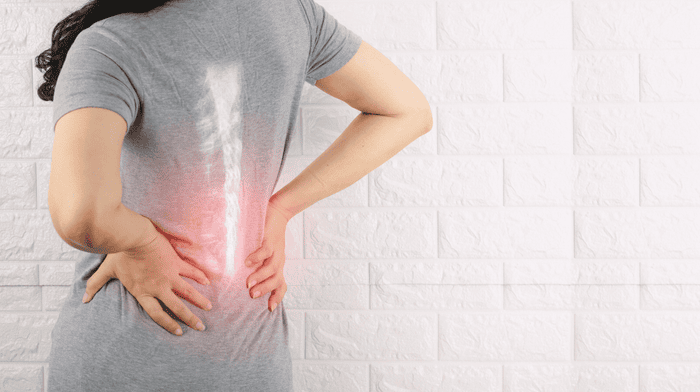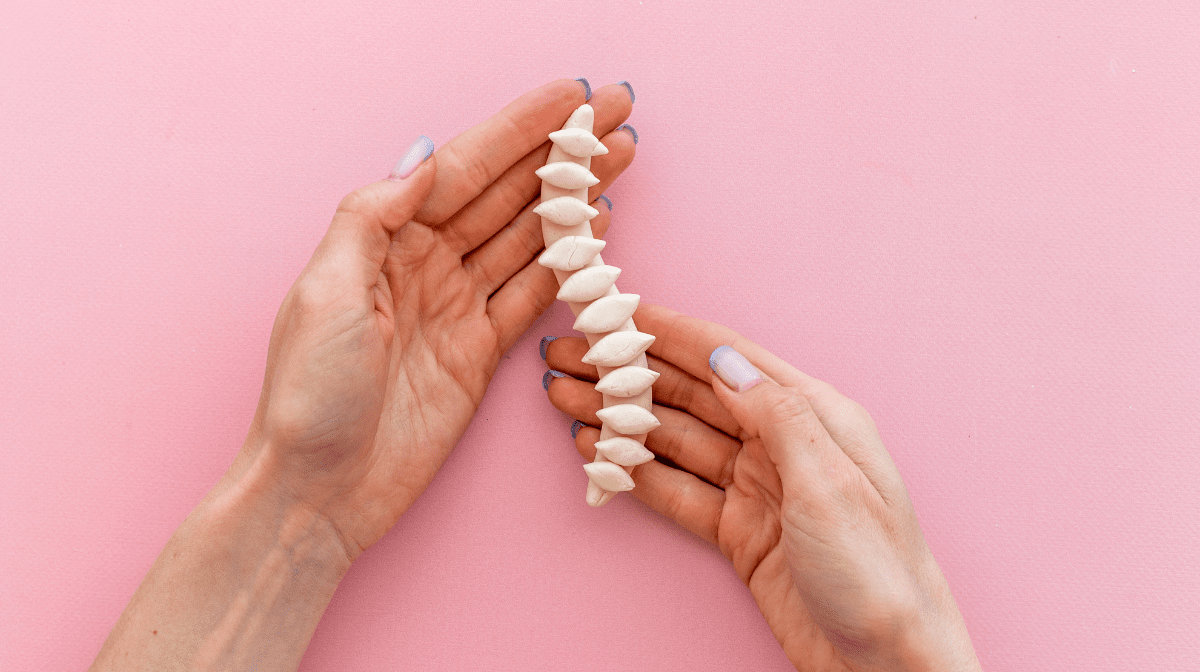
Bone health is something that we really need to consider as part of the ageing process and it actually starts a lot earlier than we might realise. It is widely accepted that nutrition can have a significant role in the health of our skeletal system which can impact on bone growth and development. Nutritional deficiencies can compromise the health of our bones that can be linked to increased risk of injury and conditions such as osteoporosis. Aside from nutrition and age, gender, lack of exercise, smoking and increased alcohol consumption are also risk factors to consider.
However, there may also be a further connection with our gut known as the gut-bone axis. This essentially refers to the communication between our gut microbiome and the skeletal system which then impacts on bone health. Here’s how it works…
We have special cells in bone tissue which manage the breaking down of bone. As we age this activity increases as these cells respond to age-related inflammation. Reducing inflammation and bone tissue activity is therefore a pivotal part in protecting our bones as we age, and it is our gut microbiome that can have a significant impact on this process. Our gut microbiome can help to reduce inflammation via the immune system since approximately 70-80% of immune cells are located in the gut and can be a key player in how we manage inflammation more systemically throughout the body. This is due to the vital role our gut microbiome has in managing the health of the gut barrier which is a crucial element to an optimally functioning immune system. Through positively altering inflammation, the gut microbiome can help to balance bone cell activity, and as such can contribute to the preservation of bone density.

In addition, our gut microbiome can have a significant role to play in hormonal health which is vital in maintaining bone health. Lack of hormones such as oestrogen can have a major impact on the activity of bone cells and therefore contribute to bone loss.
Furthermore, imbalances in our gut microbiome can also impact on absorption and production of key bone health nutrients such as calcium, vitamin K and vitamin D.
So how can we help to support our gut-bone axis?
Increase plant diversity
This helps to feed and fuel the gut microbiome so that it can perform all of the essential roles as mentioned above and to produce crucial substances and vitamins (such as Vitamin K) conducive to optimum bone health. Aim for 30+ plants per week which sounds quite a lot but when you consider that plant foods cover vegetables, fruit, whole grains and nuts & seeds there is quite a lot to choose from. Simple ways you can help to increase your diversity is through blending a few into soups or smoothies, adding to stews, making roasted veg tray bakes and creating a nut & seed mix with 4-5 different types.

Include fermented dairy
In the form of aged cheese, yogurt, creme fraiche and kefir as these all provide food- based forms of calcium; ones that are processed with live cultures will also provide additional benefit for the gut. Moreover, because the lactose and casein content is largely degraded in the fermentation process the fermented types of dairy can often be better tolerated than milk or cream which hasn’t been fermented.
Think about vitamin D
Vitamin D has a critical role in calcium for optimum bone health and depending on where you live in the world you may not be getting much sunshine and therefore it may be beneficial to supplement with Vitamin D. Bimuno Immunity contains vitamin D as well as prebiotics that can help to add in extra nourishment for your gut.
Include weight-bearing exercise
Maintaining bone density also depends on regular physical activity specifically those that include some weight-bearing element. A full body strength programme that works out all the major muscles can benefit the entire body. In addition, increasing strength and stability can help reduce the risk of falls. But, if you wish to ease yourself in walking and running will also have some positive impact, but it can only benefit the bones that bear the load so in this case it would only protect bones in the lower body.
REFERENCES
Cooney OD, Nagareddy PR, Murphy AJ, Lee MKS. Healthy Gut, Healthy Bones: Targeting the Gut Microbiome to Promote Bone Health. Front Endocrinol (Lausanne). 2021 Feb 19;11:620466. doi: 10.3389/fendo.2020.620466. PMID: 33679604; PMCID: PMC7933548.
Khazai N, Judd SE, Tangpricha V. Calcium and vitamin D: skeletal and extraskeletal health. Curr Rheumatol Rep. 2008 Apr;10(2):110-7. doi: 10.1007/s11926-008-0020-y. PMID: 18460265; PMCID: PMC2669834.
Li J, Ho WTP, Liu C, Chow SK, Ip M, Yu J, Wong HS, Cheung WH, Sung JJY, Wong RMY. The role of gut microbiota in bone homeostasis. Bone Joint Res. 2021 Jan;10(1):51-59. doi: 10.1302/2046-3758.101.BJR-2020-0273.R1. PMID: 33448869; PMCID: PMC7845471.
Rizzoli R. Dairy products and bone health. Aging Clin Exp Res. 2022 Jan;34(1):9-24. doi: 10.1007/s40520-021-01970-4. Epub 2021 Sep 7. PMID: 34494238; PMCID: PMC8794967.
Watson SL, Weeks BK, Weis LJ, Harding AT, Horan SA, Beck BR. High-Intensity Resistance and Impact Training Improves Bone Mineral Density and Physical Function in Postmenopausal Women With Osteopenia and Osteoporosis: The LIFTMOR Randomized Controlled Trial. J Bone Miner Res. 2018 Feb;33(2):211-220. doi: 10.1002/jbmr.3284. Epub 2017 Oct 4. Erratum in: J Bone Miner Res. 2019 Mar;34(3):572. PMID: 28975661.
Zhang J, Lu Y, Wang Y, Ren X, Han J. The impact of the intestinal microbiome on bone health. Intractable Rare Dis Res. 2018 Aug;7(3):148-155. doi: 10.5582/irdr.2018.01055. PMID: 30181933; PMCID: PMC6119671.









